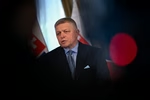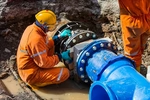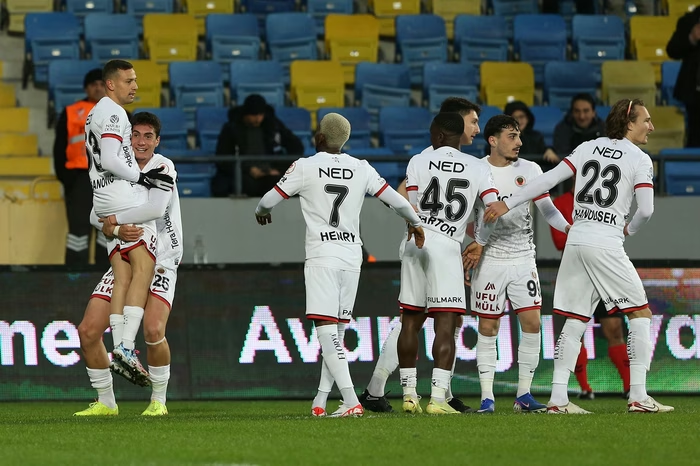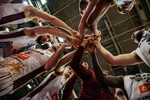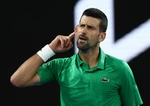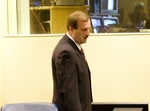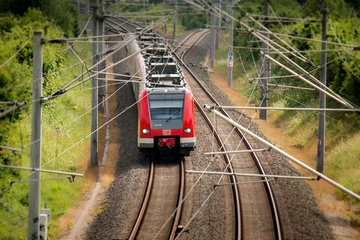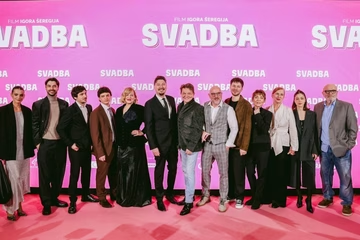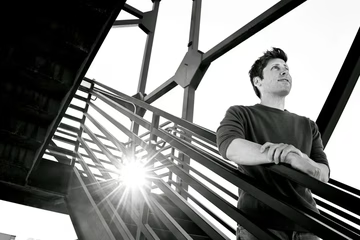Memories of Sarajevo's defiant athletes: Racing under sniper fire for victory and hope

Thirty years have passed since athletic competitions were held in Sarajevo, where each race on the Kosevo stadium track could have been the athletes' last due to the war. Despite the dangers, the athletes never gave up. In an interview with N1, guests Mehmed Lokmic, Amir Becirhodzic, and Nedim Zeco shared stories of defiance, hope, and their desire to win during those difficult times.
Oglas
"Zenica was like New York to us"
Amir Becirhodzic, who was 14 at the time, found solace in athletics during the war. "It was a period of a ceasefire, and our parents didn't know what to do with us during our restless teenage years. I started training in athletics in March '94 and immediately fell in love with the sport," he recalled. He also spoke of a 800-meter race held during halftime of a match between Sarajevo and UNPROFOR, which took place at a packed Kosevo stadium.
His friend, Nedim Zeco, reminisced about traveling with Sarajevo's Athletic Club to Zenica, a journey they undertook via the Igman mountain to compete in the national championship. "Zenica was like New York to us. People were walking in the streets, and we were running on the stadium track—it felt unreal," Zeco recalled.
"Racing under sniper fire at Kosevo"
In September 1994, part of the national championship was held at the Kosevo stadium due to safety concerns. Mehmed Lokmic, then a young athlete and now the Secretary-General of the Bosnian Athletics Federation, shared how dangerous training and competing had been. "We were experienced athletes, used to grenade attacks and sniper fire. There were moments when we prayed for fog so we could train without being seen," he said.
Recalling the day of the competition, he described how their teammate Toni narrowly escaped sniper fire during warm-up. Despite the risks, they continued to compete. "We didn’t think about dying, we just wanted to win," Lokmic added.
Oglas
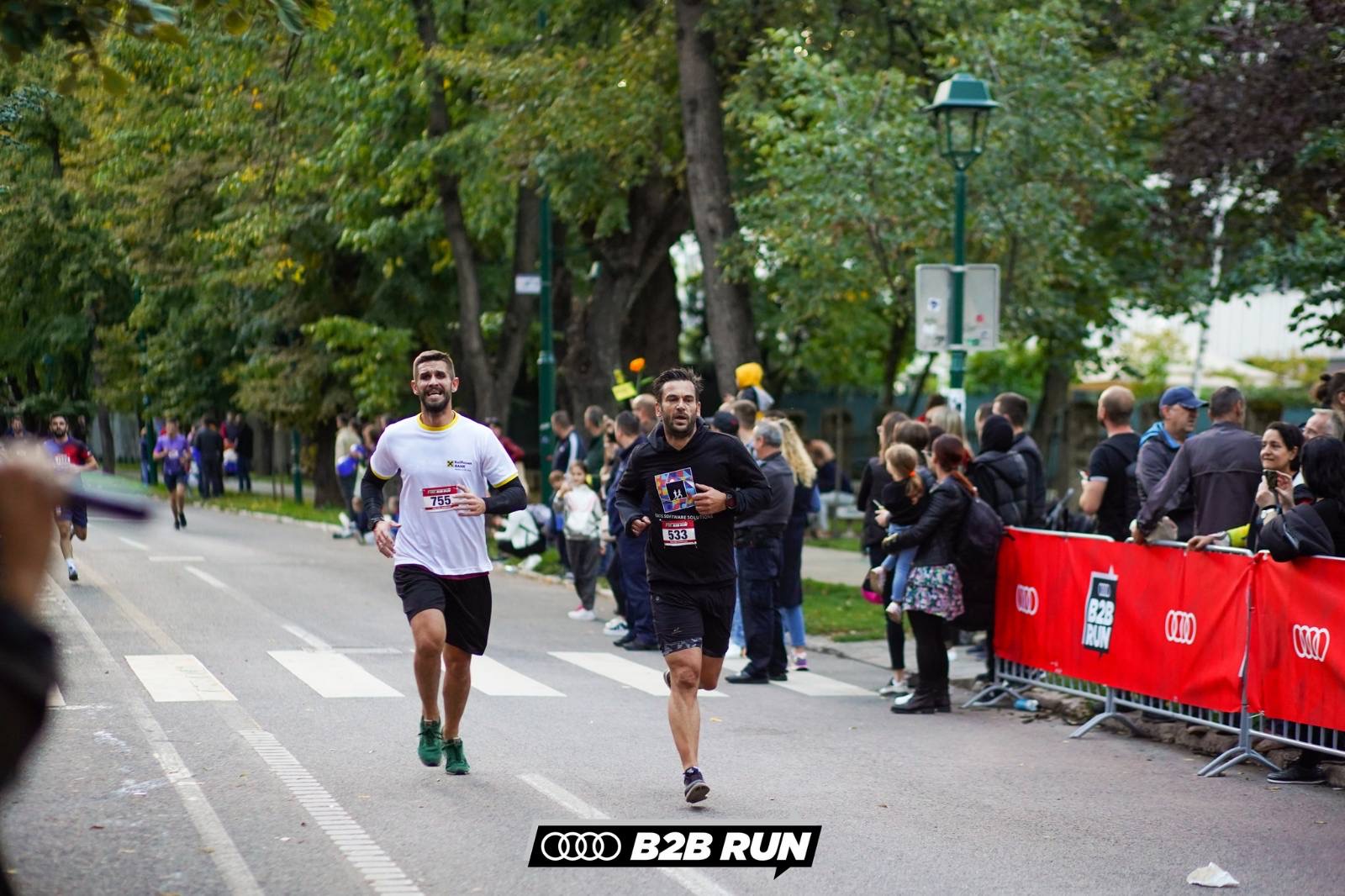
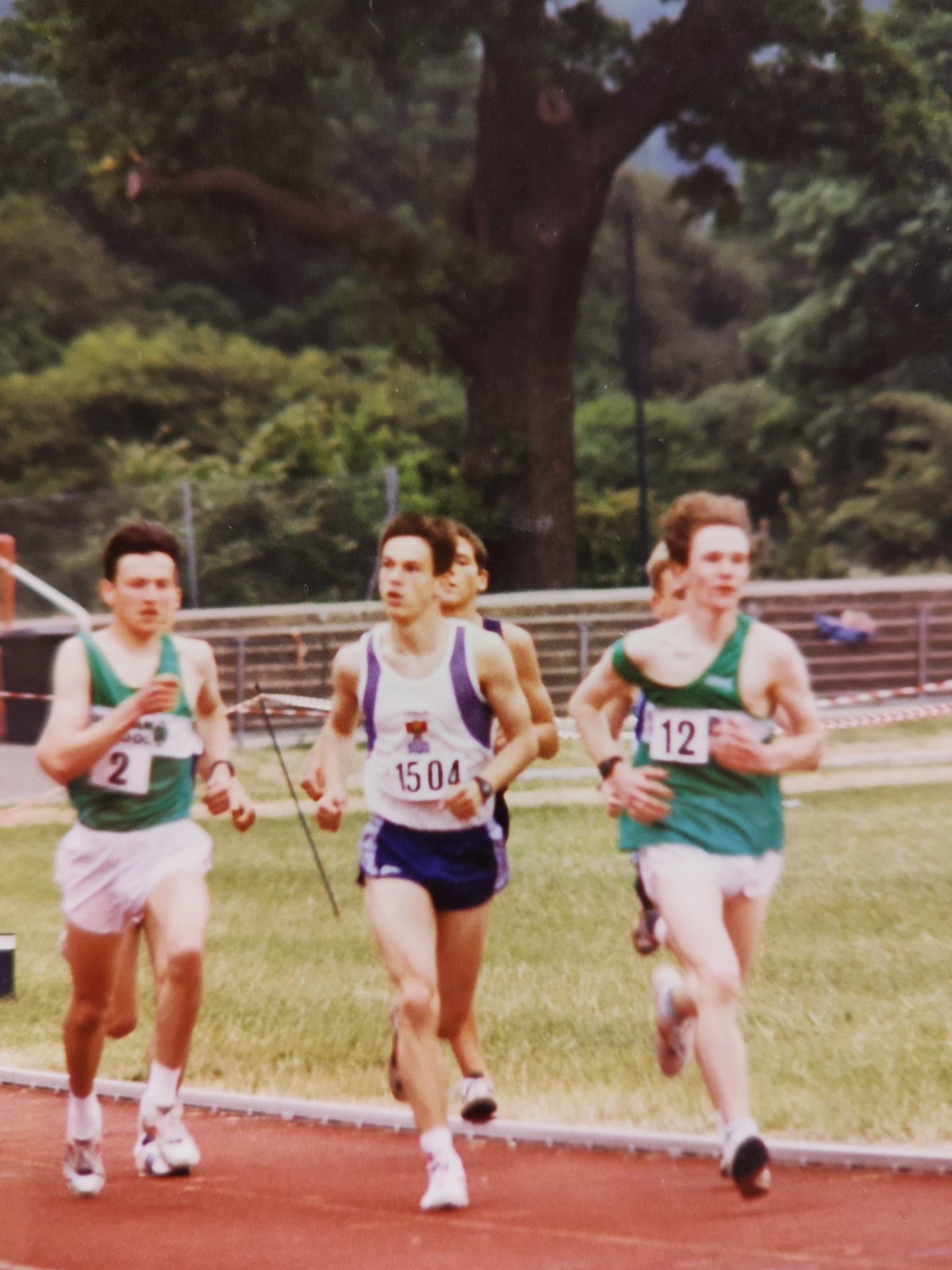
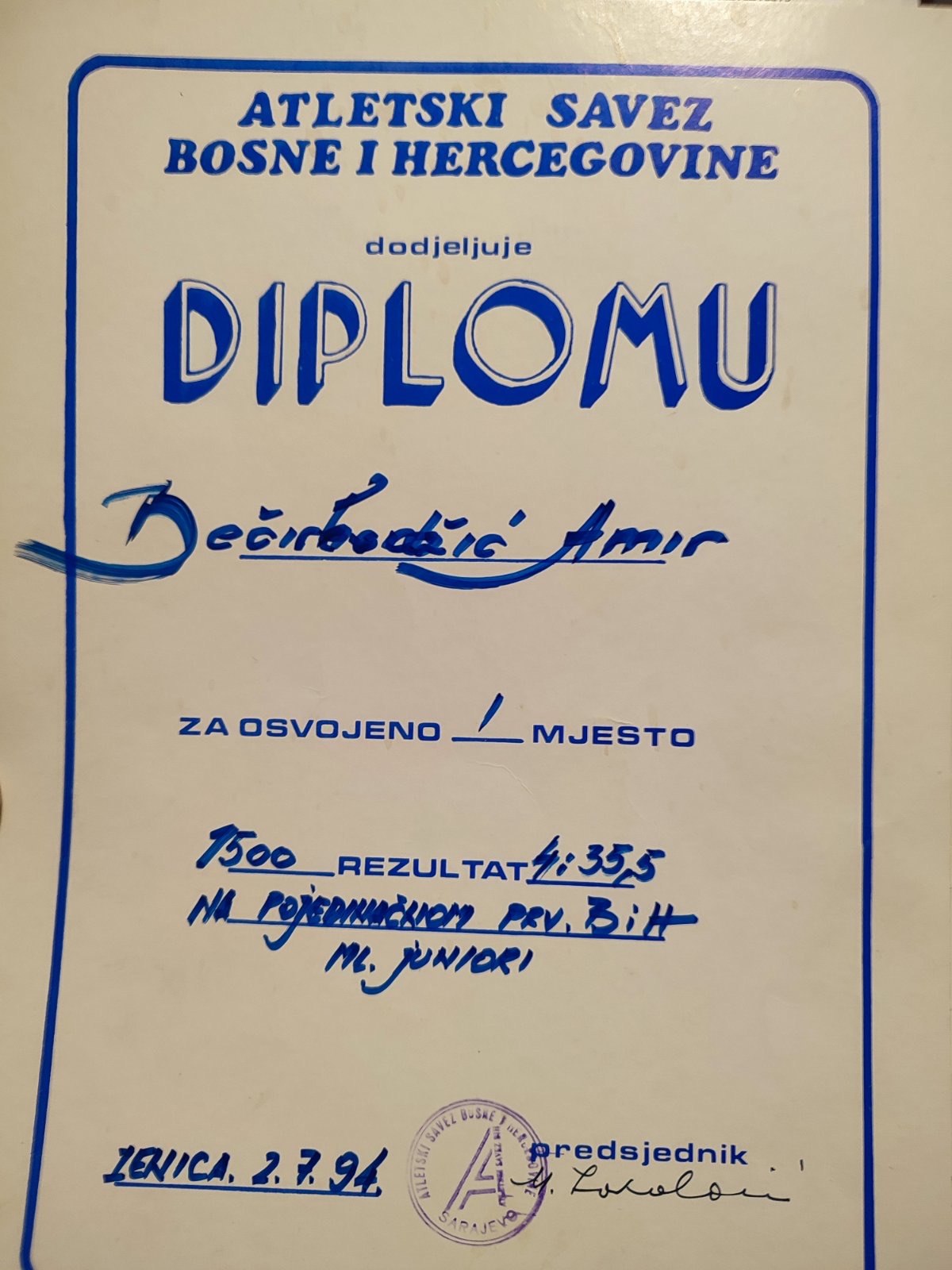

Foto: Privatna arhiva Amir Bećirhodžić | Foto: Privatna arhiva Amir Bećirhodžić
Više
Foto: Privatna arhiva Amir Bećirhodžić | Foto: Privatna arhiva Amir Bećirhodžić
Više
Foto: Privatna arhiva Amir Bećirhodžić | Foto: Privatna arhiva Amir Bećirhodžić
Više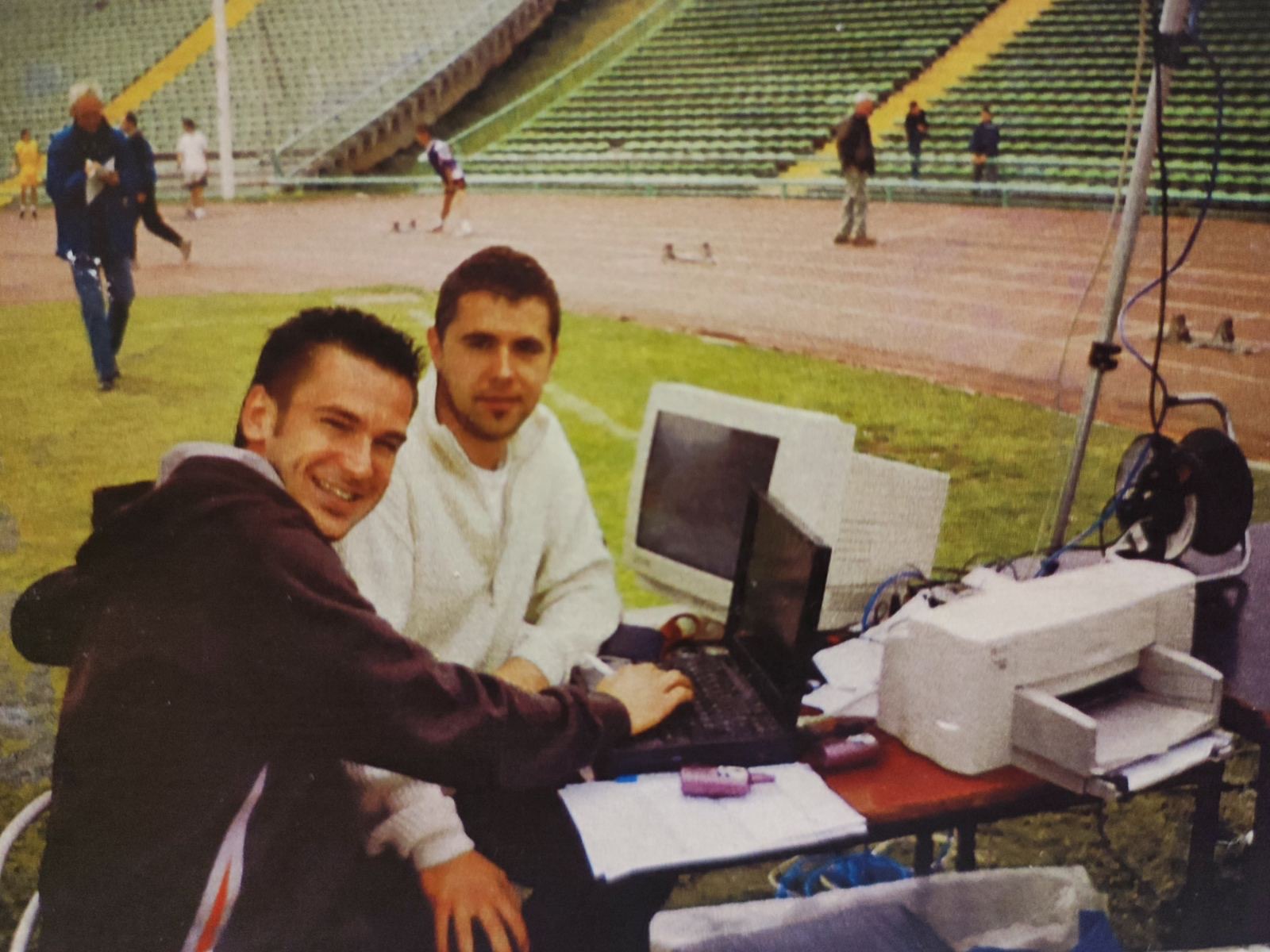
Foto: Privatna arhiva Amir Bećirhodžić | Foto: Privatna arhiva Amir Bećirhodžić
Više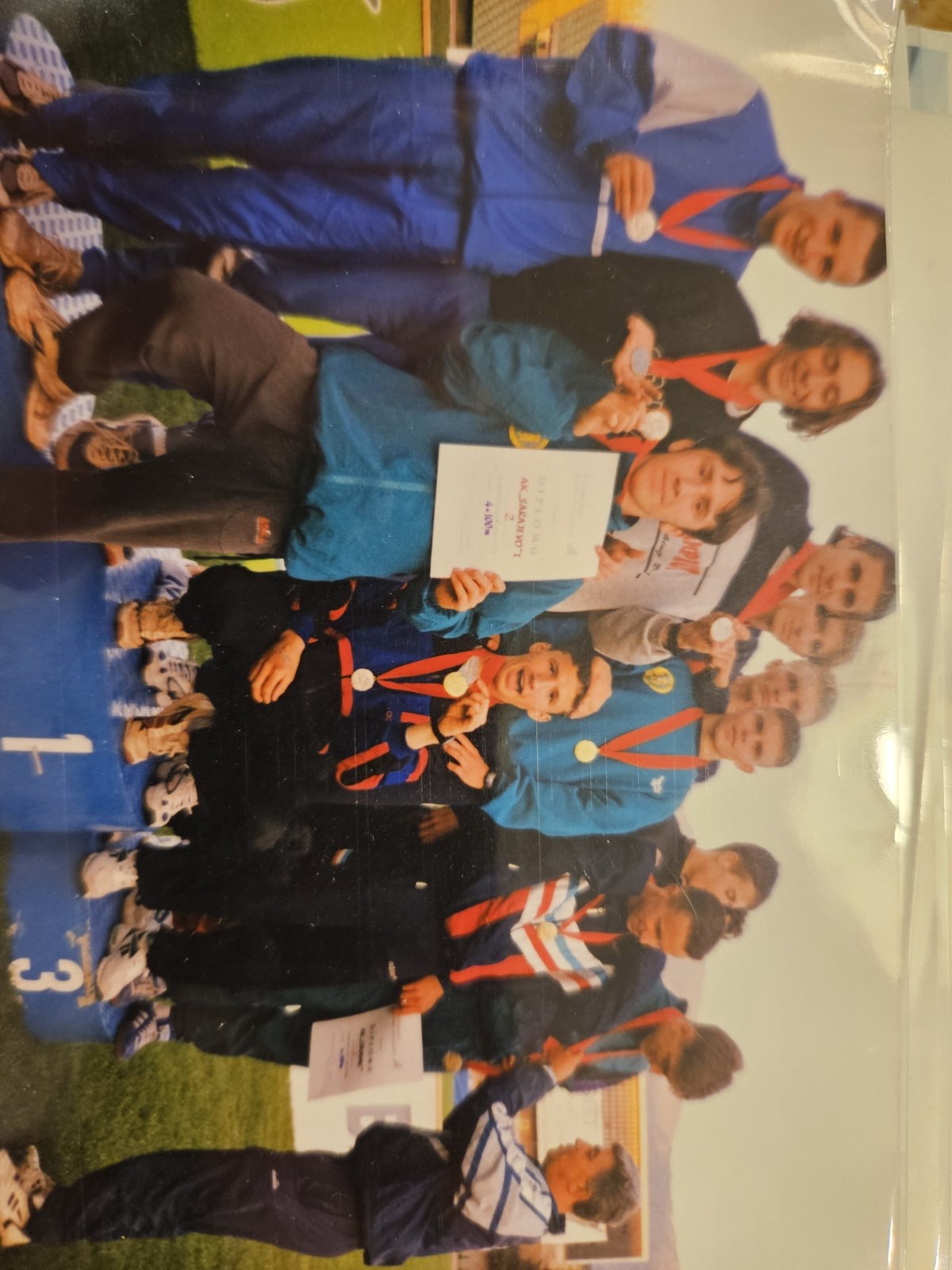
Foto: Privatna arhiva Amir Bećirhodžić | Foto: Privatna arhiva Amir Bećirhodžić
Više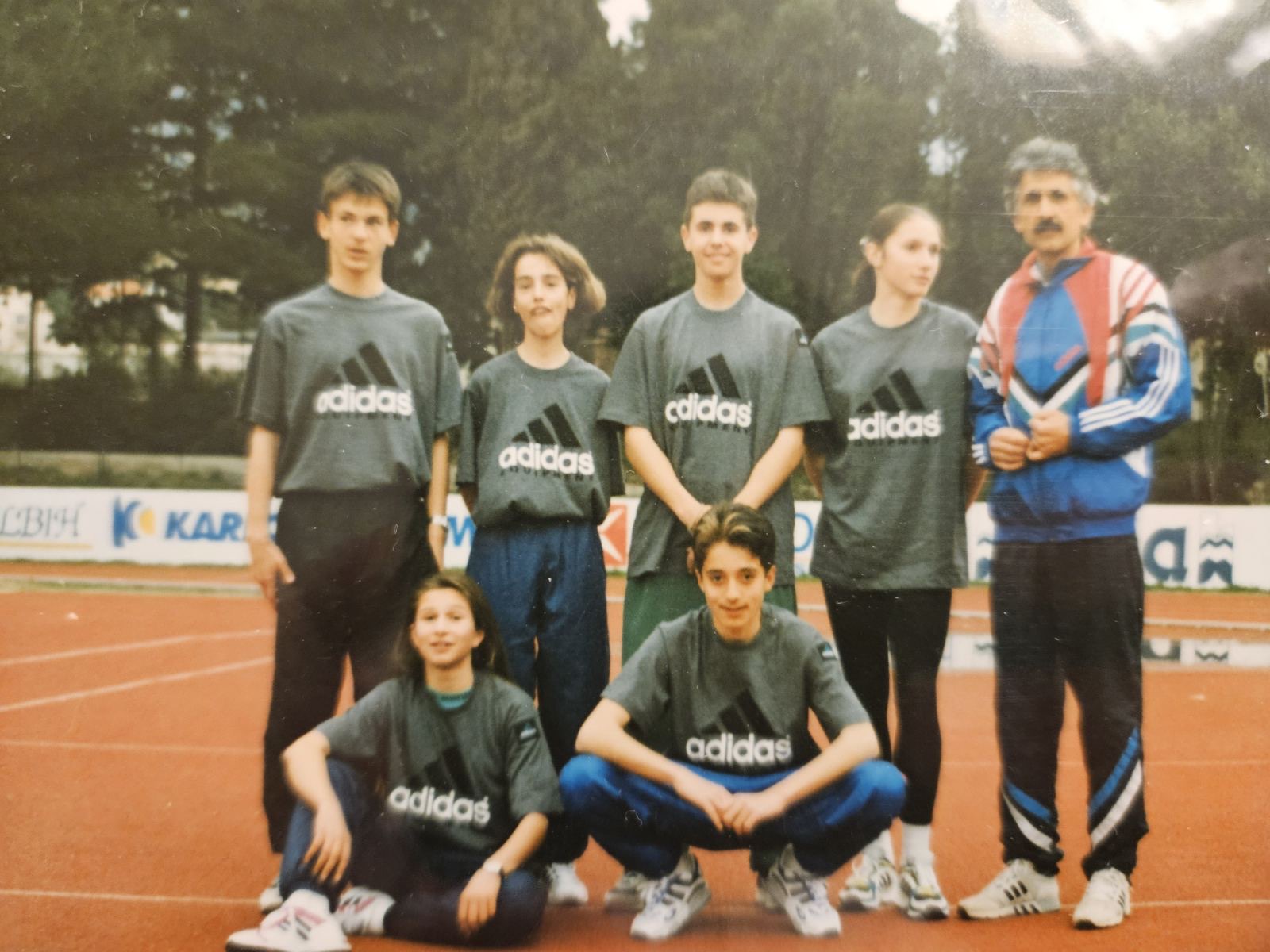
Foto: Privatna arhiva Amir Bećirhodžić | Foto: Privatna arhiva Amir Bećirhodžić
Više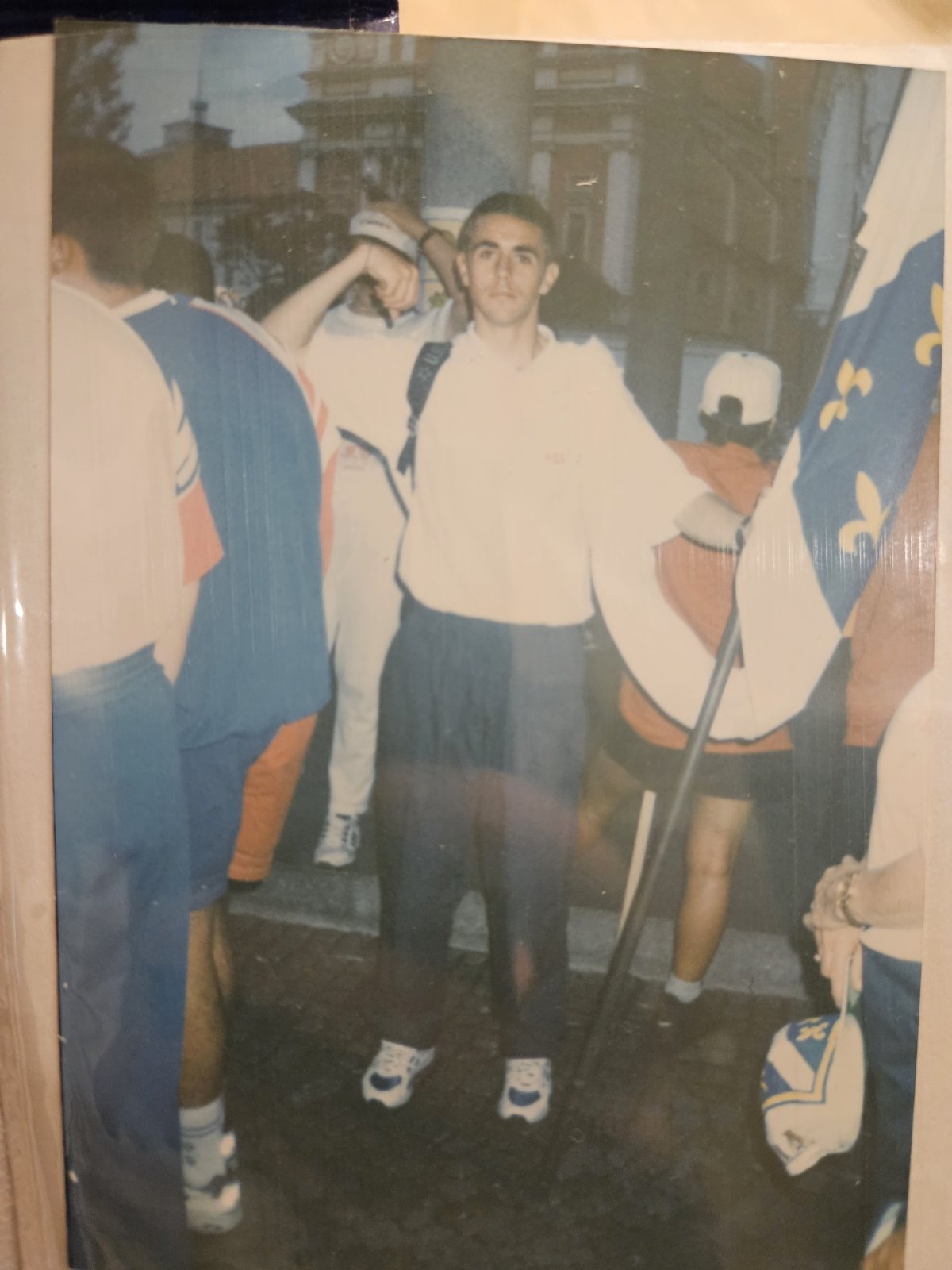
Foto: Privatna arhiva Amir Bećirhodžić | Foto: Privatna arhiva Amir Bećirhodžić
Više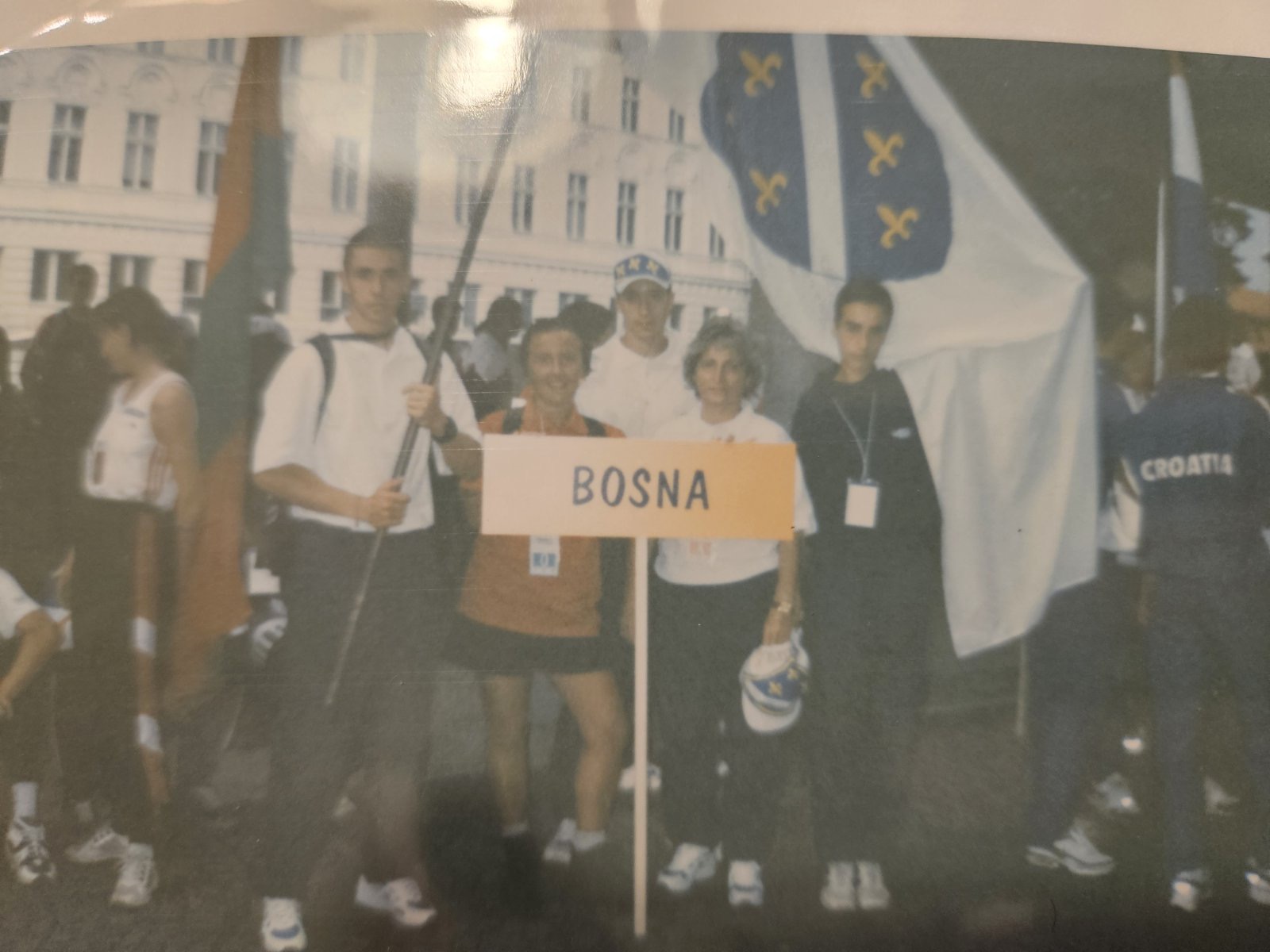
Foto: Privatna arhiva Amir Bećirhodžić | Foto: Privatna arhiva Amir Bećirhodžić
Više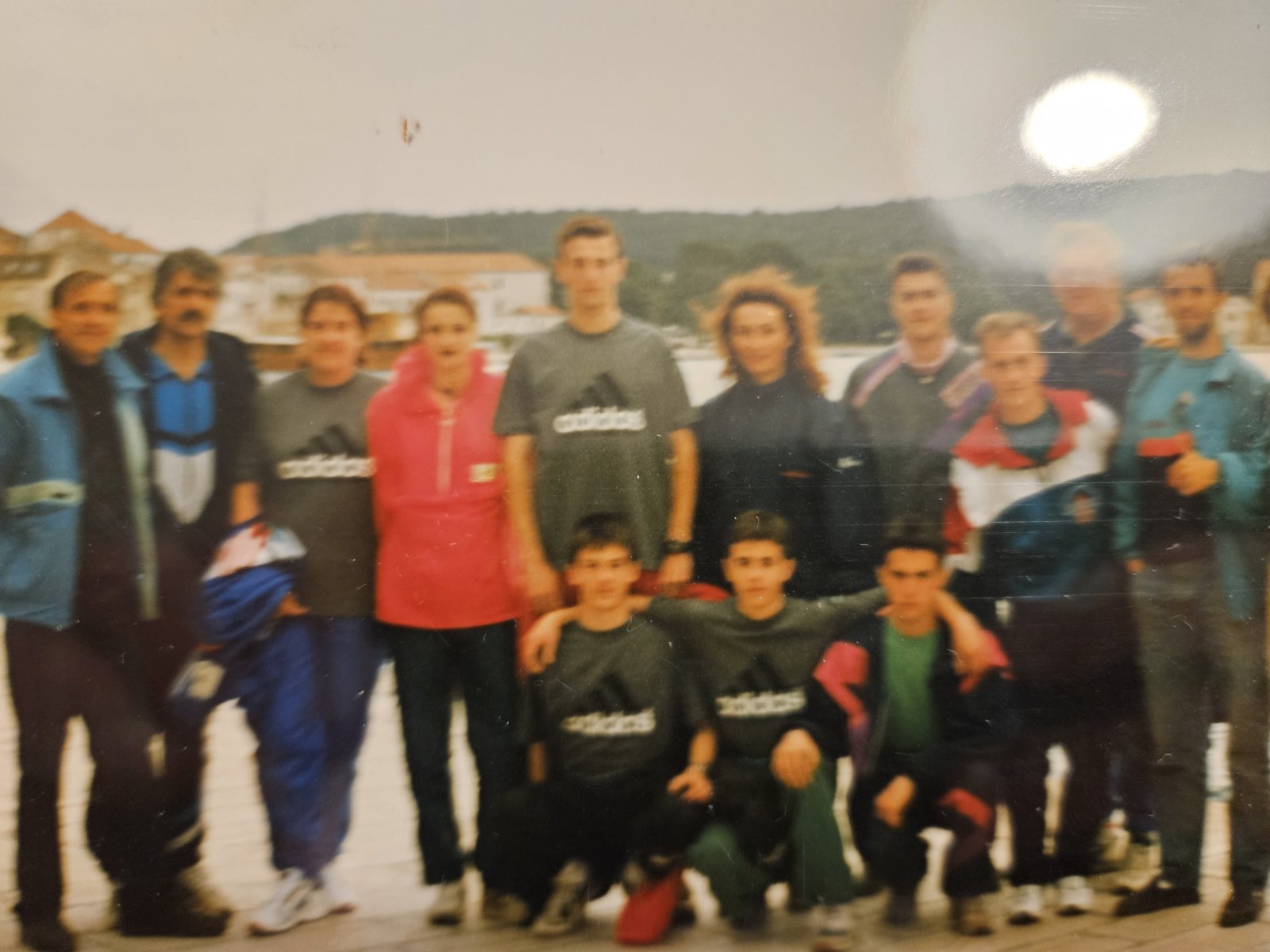
Foto: Privatna arhiva Amir Bećirhodžić | Foto: Privatna arhiva Amir Bećirhodžić
Više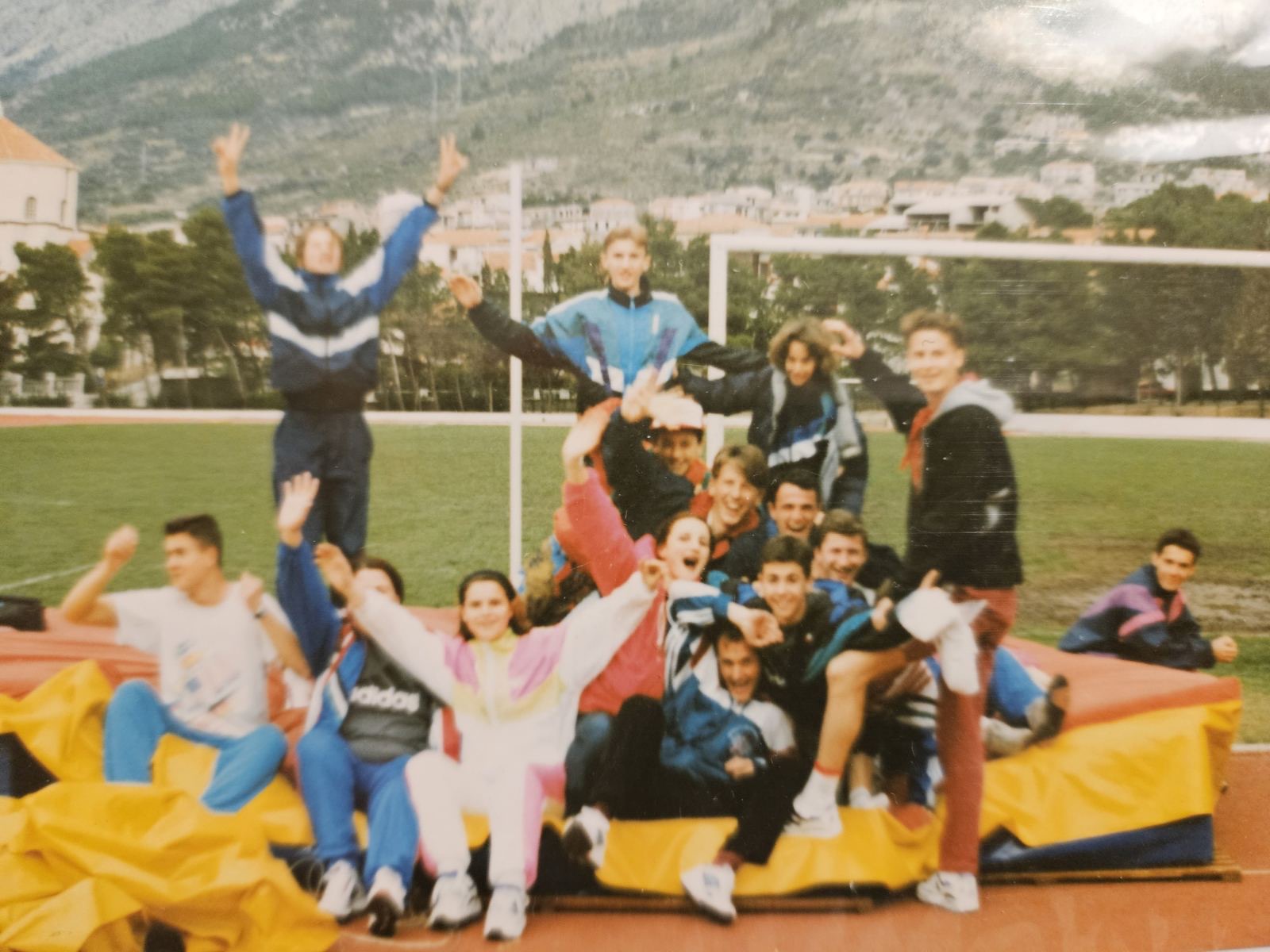
Foto: Privatna arhiva Amir Bećirhodžić | Foto: Privatna arhiva Amir Bećirhodžić
Više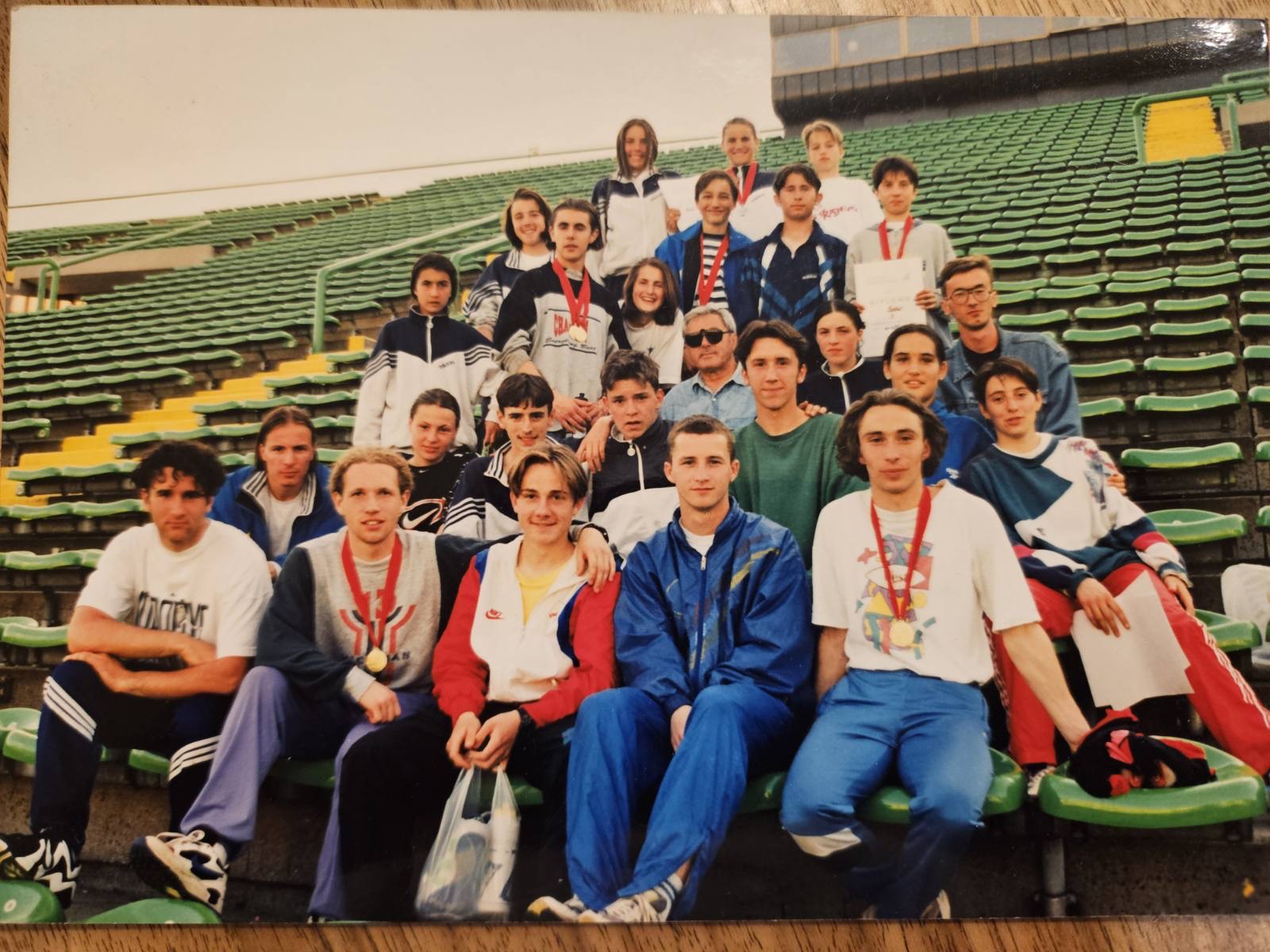
Foto: Privatna arhiva Amir Bećirhodžić | Foto: Privatna arhiva Amir Bećirhodžić
Više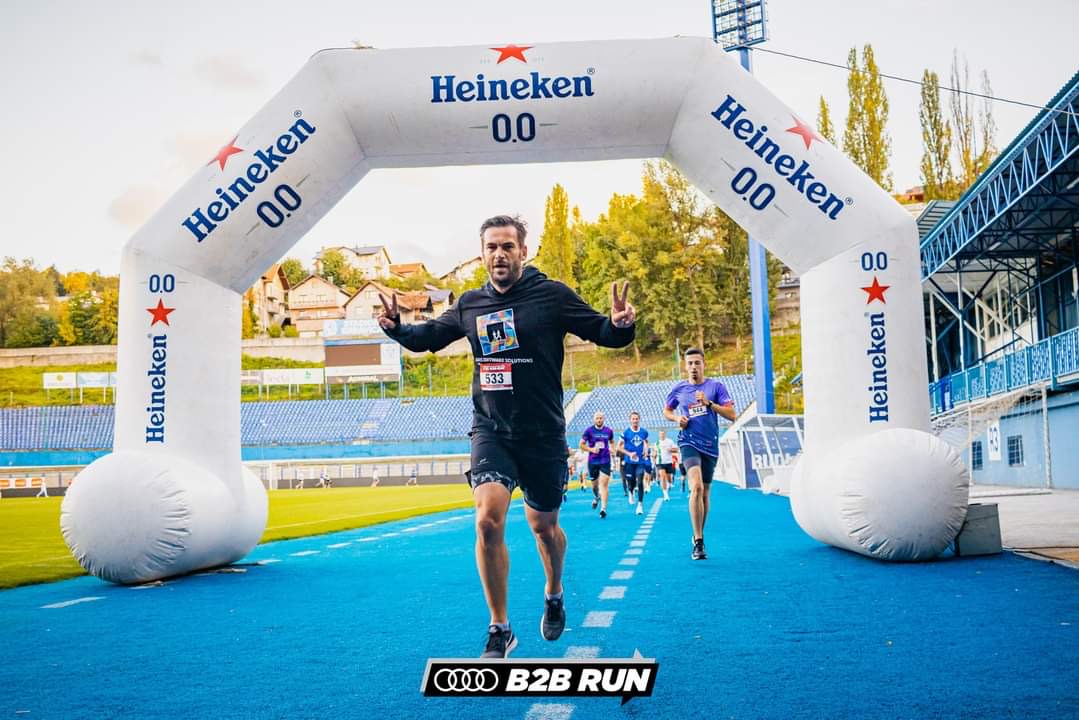
Foto: Privatna arhiva Amir Bećirhodžić | Foto: Privatna arhiva Amir Bećirhodžić
Više"Who was crazier – the kids, parents, or coaches?"
Becirhodzic reflected on the fearless attitude of the athletes, saying, "It’s hard to say who was crazier – us kids who didn’t think about the danger, the parents cheering us on, or the coaches allowing the races to happen." Zećo added, "Snipers were shooting, but we didn’t care. We all won that day, not just the athletes."
Remembering the coaches and community spirit
Lokmic also paid tribute to their coaches, including Zoran Divcic and Kasim Pecikoza, who ensured they had training spaces during the war. "Our coaches created ‘safe’ areas for training, like Skenderija, but just getting there was dangerous," he said. He highlighted how athletics brought people together, even in the toughest times, and how it remains a source of connection and camaraderie today.
Oglas
"Sports are essential for a healthy society"
Zeco concluded with a message for future athletes and sports enthusiasts, stressing the importance of sports for society. "The more talented athletes we have, the more the country can benefit. We need to invest more in sports," he said.
Lokmic also reflected on the challenging state of sports in Bosnia and Herzegovina, noting that many sports federations struggle to survive. "Athletics is the foundation of all sports, but it’s neglected. We need structural changes, starting with the Sports Law, to ensure the future of our athletes," he concluded.
Kakvo je tvoje mišljenje o ovome?
Učestvuj u diskusiji ili pročitaj komentare
Oglas
Kakvo je tvoje mišljenje o ovome?
Učestvuj u diskusiji ili pročitaj komentare
Oglas
NAJČITANIJE
Oglas
Oglas
Najnovije
Oglas
Oglas





 Srbija
Srbija
 Hrvatska
Hrvatska
 Slovenija
Slovenija











